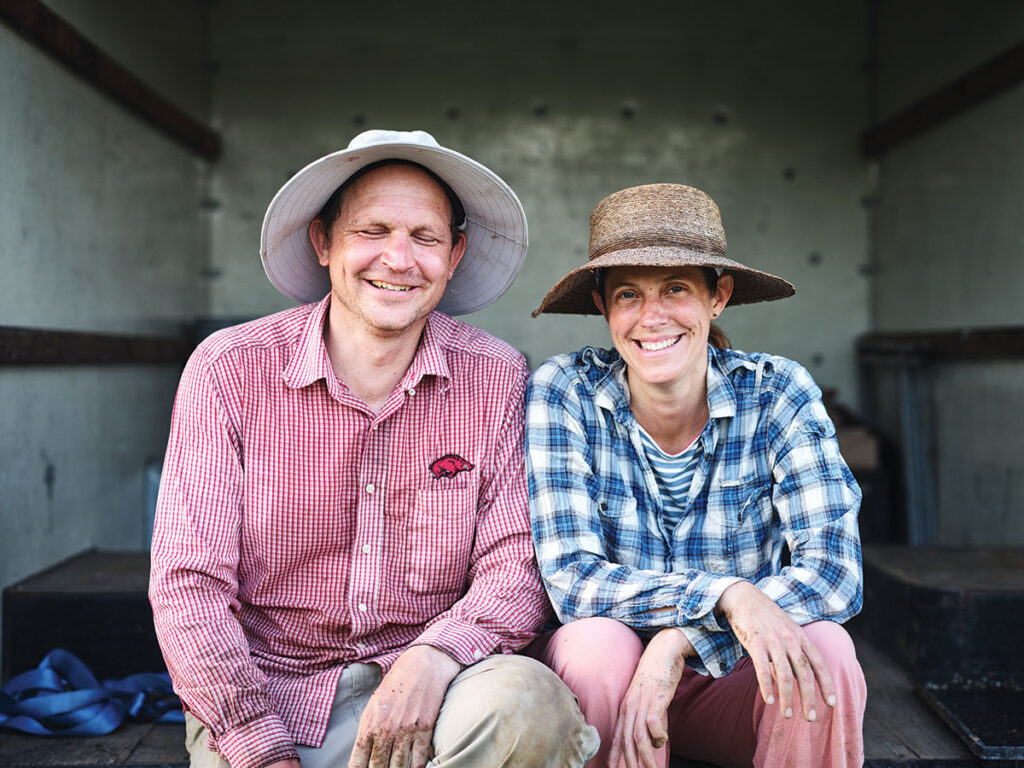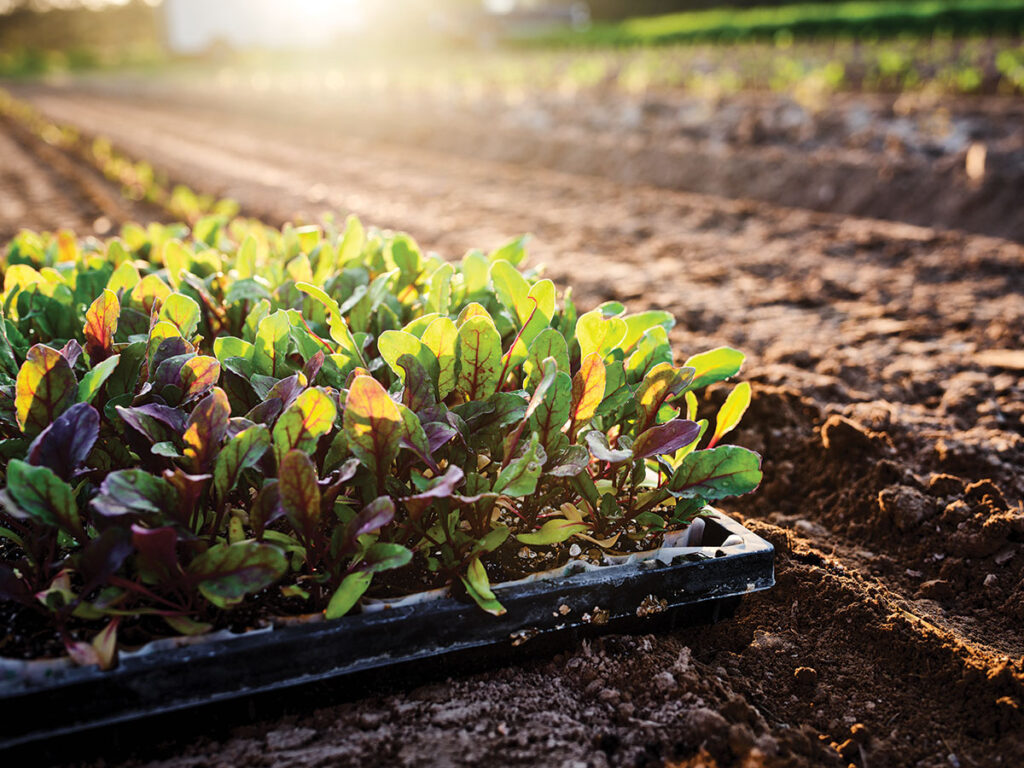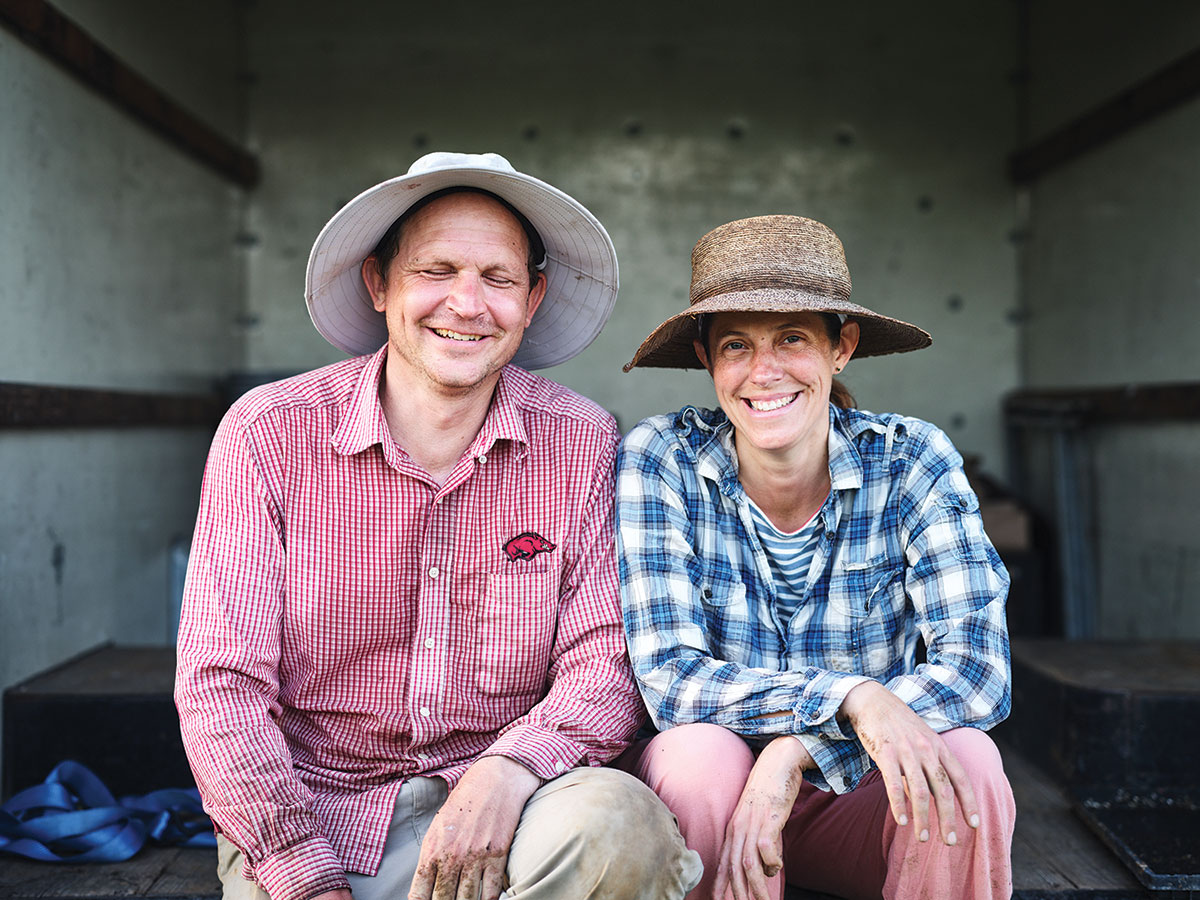
Emily Oakley says the move a small farm what the right decision
OAKS, OKLA. – Emily Oakley knew she had her hands full. The Tulsa (Okla.) native had to somehow convince her Long Island (N.Y.) born and bred husband, Michael Appel, to pull up stakes and move to the middle of the country to chase their dreams.
At the time even Emily wasn’t 100 percent sure that was the right decision for the couple. But in the end, both were willing to put it all on the line and go for it.
Now after almost two decades of owning and operating Three Springs Farms in Cherokee County, Emily knows they made the right decision.
“Convincing him to move here was a little bit tricky just because he grew up like 30 minutes from New York City and had a very different environment than rural Oklahoma,” Emily said. “But the funny thing is now Mike would not live anywhere else. He’s the one who like I feel is more of an Okie at this point than even I am.”
Three Spring Farms is a small-scale organic vegetable farm that sells directly to its consumers. They produce 30 crops and 100 varieties of vegetables and fruits.
“We have about 3 acres in production that we’re harvesting from each year,” Emily said. “And then about another three acres and a fallow period with a cover crop. Then about an acre in some perennials, like some apples and pears and asparagus. Just a little mixture. We only have seven acres in the entire production. But it is our full-time job. And it gives a simple but adequate living.”
Despite both Emily and Michael growing up in metropolitan areas, living the simple farm life has grown to appreciate.
However, earlier in their professional careers, Emily had other plans.
“We studied international agricultural development so we would be like working with other farmers,” Emily said. “We kind of quickly realized while we were doing that, that it seemed really disingenuous to be able to just go to college and study farming and then go talk to people who’ve been farming for generations on a farm. So we decided what we really wanted was just to try to farm ourselves.”
Even though the idea of being a farmer wasn’t something that was handed down through their families, Emily saw the benefits it provided and felt it fit the lives they had been searching for, even if they didn’t know it right away.
“We love farming because it’s a chance to be outside and be our own bosses,” Emily said. “We get to do something that we feel really passionately about and we like the magic of planting a seed and watching it turn into a tomato plant and then produce all these beautiful, delicious tomatoes. Still, after 20 years it brings us a lot of inspiration and amazement. But in choosing it career, there was something really appealing to us about being independent, but being involved every day in something that brought us so much and made us just feel good about the work that we were doing rather than sitting in front of the computer all day or doing something more for like the pursuit of money rather than the pursuit of just personal pleasure.”
But even more than that, Emily and Michael see farming as doing their part for social justice. While working at a community gardening non-profit in Rhode Island and interning at Full Belly Farm in California, the two saw the impact of having access to fresh fruits and vegetables can have on communities.
Emily was particularly interested in agrobiodiversity and the role of women in farming. She served as a farmer representative on the USDA’s National Organic Standards Board from 2016 to 2021, was one of the first board members for the National Young Farmer’s Coalition, and was also a founding board member and co-president of Tulsa’s Global Garden.
“I definitely came toward farming with just an interest in environmental issues and so did Mike. But I think he also probably had even stronger issues or concerns about just social issues and social justice issues,” Emily said. “Agriculture may not seem like a natural place for the intersection of those two overarching things, but it was for us.”

Emily said they are passionate about creating a biologically diverse agricultural system that protects nature rather than harming it. Their goal is to replenish the land for future generations.
Because of that, Three Rivers chooses to only certified organic pest control methods; they do not use any herbicides or chemical pesticides.
When Emily first moved to Oklahoma, she said this type of environmentalist thinking was not prevalent.
“We were in California and that was an incredibly close-knit farming community where we interned and learned. But again there was an abundance of organic vegetable farmers and Oklahoma had very few,” Emily said. “So that was kind of a huge appeal to going someplace where we felt like the market wasn’t saturated and there would be both a demand and a desire, maybe even a need for what we were growing. That’s how I was able to convince Mike that Oklahoma should be the place that we tried.”
However, even before the couple had planted their first seeds, they quickly learned how tough the business side of farming can be. Because of their lack of real farming experience and having never owned a farm before, they were unable to get a loan to purchase land or tools.
“There were folks who just kind of laughed us out of the office like, ‘You’re not going to make it,’” Emily said. “To their credit, I don’t think they had really seen this type of farming system before and definitely hadn’t seen one succeed.”
However, before Emily’s dream was completely dashed, providence stepped in with a helping hand.
“I think we were really lucky to get to borrow land for free from this super kind couple and they let us use their property for three years. They let us use their barn, their tractor, and had that not happened, I’m not really sure we would still be farming,” Emily said. “Actually I am very sure we would not be farming if they hadn’t stepped in. But it gave us a chance to see what we could grow and see what we could sell without the pressure of trying to get a loan and have a mortgage over our heads.”
Emily said it was close to 10 years of running Three Rivers before they really felt comfortable and had gotten over the hump. With it being a strictly two-person operation, their entire lives were dedicated to making the farm work.
However, since then, Emily and Michael had their first child, which she said gave them a different perspective when it came to their farm as well.
“The first 10 years we joked that we didn’t have kids because the farm was our baby. And then when we actually had a baby, we realized how true that had been,” Emily said with a laugh. “We could no longer let the farm be our baby. The farm could not take as much of our time as it had. So having a kid was probably one of the healthiest things that we did on a really selfish level because it gave us a chance to put into perspective how we wanted our time to go.”
During a time when many farms are struggling to stay afloat and are awash in debt, Emily said Three Rivers is in a good place. They have actually cut back on their production so they will have more time in other areas.
While that means Three Rivers is bringing in less money than before, Emily said the trade-off is worth it.
“I’d say like exactly where it is like this. COVID gave us a gift by helping us see a whole different marketing approach and we stopped attending our farmer’s market and we just focused on our Community-Supported Agriculture (CSA) program,” Emily said. “A friend helps develop an app and so people just go online each week and we list what we’ve got and they pick what they want and then we go out and harvest that and then we deliver it to the parking lot on Saturday mornings. It’s amazing. We get more sleep. It’s already all sold. I think we really hit a happy place with our farm system.”







